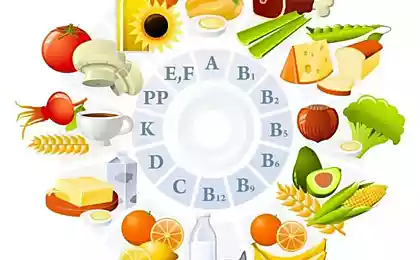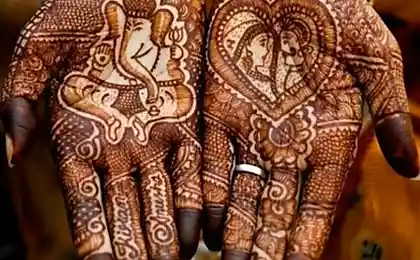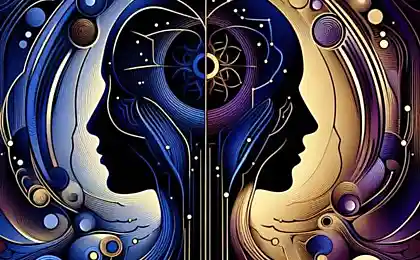176
The art of choosing not those
Why we attract the wrong partners and how to change it
The key to strong relationships is not only the similarity of characters or complementary qualities. Sometimes the most important skill in love is the ability to recognize and reject inappropriate partners who seem perfect at first glance.

The paradox of attractiveness
Maria, a successful marketer, always chose men who were the exact opposite of her. Spontaneous artists, free travelers, charismatic rebels. On her first dates, she felt incredibly excited about their unpredictability. But six months later, there was always disappointment: partners were irresponsible, incapable of serious commitments and emotionally unavailable.
73% of people repeat the same patterns in choosing partners, even after a failed relationship
Mary's story is typical. We are often attracted to people who activate our deep psychological triggers, but are not suitable for long-term relationships. Psychologists call this phenomenon the paradox of attractiveness.
Why we choose the wrong ones
The roots of this phenomenon go back to childhood. Our brains form attachment patterns based on early relationships with parents. If a child received love inconsistently or had to “deserve” attention, as an adult, they may subconsciously seek out partners who recreate this familiar uncertainty dynamic.
Key insight: We don't fall in love with people by accident. We fall in love with qualities our brain recognizes as “familiar,” even if they are toxic to us.
The Red Flags We're Ignoring
Dimitri met Anna at a party. She was the center of attention, telling fascinating stories and flirting with everyone in a row. He was drawn to her energy and confidence. Only a few months later did he realize that her need to be the center of attention bordered on narcissism, and that flirting with others continued in relationships.

What makes red flags invisible in a relationship?
- Chemistry overshadows logic When dopamine and oxytocin levels go off the charts, critical thinking turns off.
- Desired projection We see in our partner what we want to see, not what we really have.
- Romancing the shortcomings Jealousy is perceived as passion, control as care.
- Fear of loneliness Better toxic relationships than none.
Science of compatibility
Current research in relationship psychology highlights several key long-term compatibility factors that are radically different from what we’re initially attracted to.
Emotional maturity over passion
A study from Johns Hopkins University tracked 168 couples for 20 years. Couples whose relationships were built on their partners’ emotional maturity showed an 89% rate of relationship satisfaction after two decades. Couples who based their relationship on passion and chemistry maintained only 23 percent of their original happiness.
Emotionally mature partners are 4 times more likely to create stable long-term relationships
Coincidence of life goals
Elena and Igor met at the gym. They shared a passion for fitness, but their ideas about the future differed dramatically. Elena dreamed of a big family and a house outside the city, Igor planned to devote his life to his career and travel. Three years later, they broke up despite their mutual love.
Practical advice: On the third date, be sure to discuss your life plans for the next 5-10 years. Romance is romantic, but the coincidence of vectors of development is critically important.
How to stop choosing the wrong ones

Step 1: Inventory of past relationships
Analyze your last 3-5 significant relationships. Write out the common features of partners, patterns of relationship development, reasons for breakups. You’ll be surprised how similar your “different” partners are.
Step 2: Identify your triggers
What attracts you instantly? Confidence? Inaccessible? Charisma? Mystery? Write down these qualities and honestly assess whether they contribute to a healthy relationship.
Step 3: Make a list of “non-sexual” qualities
Reliability, punctuality, ability to listen, financial responsibility, kindness to animals, respect for borders. These qualities do not cause goosebumps, but they make a relationship happy at a distance.
Psychological lifehack: Enter the 48-hour rule. After the first date, wait two days before deciding on the second. This will allow the passions to settle down and engage rational thinking.
Step 4: Practice conscious acquaintance
Instead of making impulsive decisions based on chemistry, use a structured approach:
- Observe behavior in stressful situations
- Pay attention to the attitude to waiters, taxi drivers, strangers
- See how people talk about their former partners
- Evaluate the ability to compromise in small things
Alexander was the embodiment of male attractiveness: a sportsman, a successful businessman, knew how to care beautifully. But Svetlana noticed alarming signals: he was often late, did not keep promises, always blamed others for conflicts. Despite the strong attraction, she decided to end the relationship early on. A year later I found out that he cheated on the next girl.
The ability to say no to an attractive but inappropriate person is the superpower of a mature person.
Red flags that should not be ignored:
- Violation of borders insists on being close faster than you are comfortable
- Love bombing Excessive feelings at the beginning
- Isolation. Trying to distance you from friends and family
- Instability of mood - sharp changes from adoration to coldness
- Lack of empathy Unable to understand and accept your feelings
The principle of slow love
In contrast to the concept of love at first sight, psychologists are increasingly talking about “slow love,” a process of gradual recognition and attachment based on compatibility rather than chemistry.
A University of California study found that couples who dated as friends in the months before starting a romantic relationship showed 67% more relationship satisfaction and 45% less divorce.
Practical advice: Do not rush into physical intimacy. Let the relationship develop on an emotional and intellectual level. This will help you make decisions with your head, not hormones.
Developing Emotional Intelligence
The higher your emotional intelligence, the better you can recognize your partner’s compatibility. Practice:
- Awareness of your own emotions and reactions
- Ability to read nonverbal signals
- Healthy communication skills
- Ability to constructively resolve conflicts
The art of choosing the wrong ones is not about becoming cold and calculating. It's about learning to distinguish between true compatibility and superficial attraction. Passion can flare up and fade, and true intimacy is built for years on the basis of mutual respect, shared values, and emotional maturity.
Remember, loneliness is better than bad relationships. A good relationship is worth waiting for and consciously choosing.
Glossary
Emotional intelligence
The ability to understand and manage one’s emotions, and to recognize and respond appropriately to others’ emotions.
Attachment patterns
Sustainable patterns of behavior in close relationships, formed in childhood through interaction with primary caregivers.
Love bombing
Tactics of excessive display of attention and love at the initial stage of a relationship in order to quickly bind to a partner.
gaslighting
A form of psychological influence in which one partner causes the other to doubt the adequacy of perception of reality.
Narcissism
A personality disorder characterized by an inflated sense of self-importance, a need for constant admiration, and a lack of empathy.
Emotional maturity
The ability to be aware of your emotions, manage them, take responsibility for your actions and build healthy relationships with others.
How to determine what you really want from a relationship with a girl
Types of women that scare off most men























